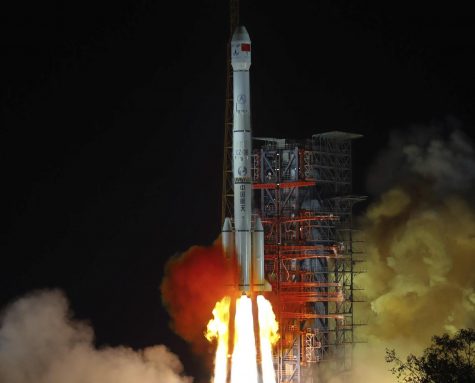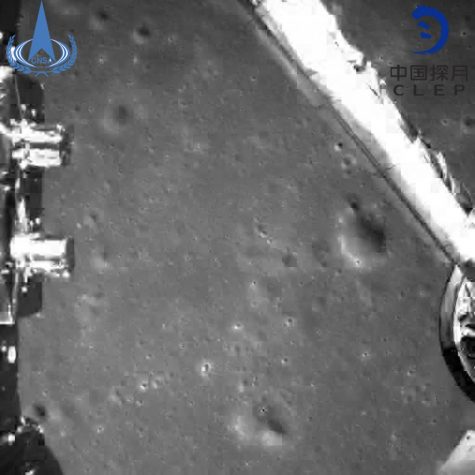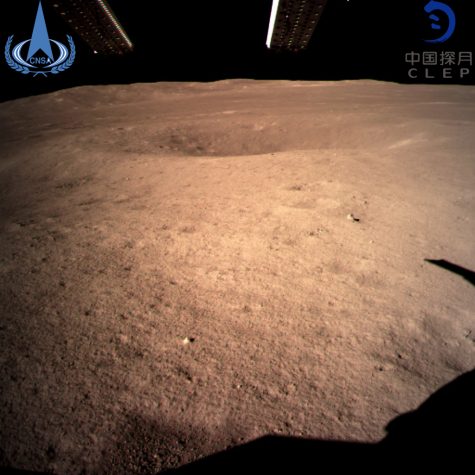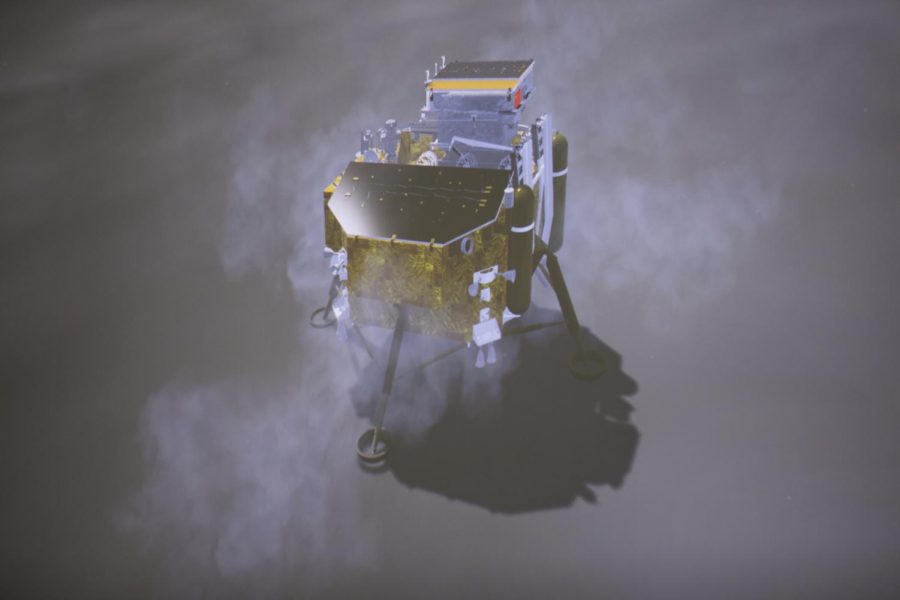In this image provided on Jan. 3, 2019, by China’s Xinhua News Agency, a simulated landing process of Chang’e-4 lunar probe is seen through the monitor at Beijing Aerospace Control Center in Beijing. A Chinese spacecraft on Thursday, Jan. 3, 2019, made the first-ever landing on the far side of the moon, state media said. (Jin Liwang/Xinhua News via AP)
China becomes the third nation to land on the moon, joining U.S. and former U.S.S.R.
China land Chang'e 4, a roving lunar probe on the far side of the moon, also known as the dark side of the moon.
BEIJING (AP) — China’s burgeoning space program achieved a first on Thursday: a landing on the so-called dark side of the moon that brings the country closer to its goal of becoming a space power.

Three nations — the United States, the former Soviet Union and more recently China — have sent spacecraft to the near side of the moon, which faces Earth, but this landing is the first-ever on the far side.
The China National Space Administration said the 10:26 a.m. touchdown of the Chang’e 4 craft has “opened up a new chapter in human lunar exploration.”
A photo taken at 11:40 a.m. and sent back by Chang’e 4 shows a small crater and a barren surface that appears to be illuminated by a light from the lunar explorer. Its name comes from that of a Chinese goddess who, according to legend, has lived on the moon for millennia.
The landing highlights China’s growing ambitions to rival the U.S., Russia and Europe in space, and more broadly, to cement the nation’s position as a regional and global power.
“The space dream is part of the dream to make China stronger,” President Xi Jinping said in 2013, shortly after becoming China’s leader.
In year-end wrap-ups, Chinese media and officials hailed the Dec. 8 launch of Chang’e 4 as one of the nation’s major achievements in 2018. The landing on Thursday was announced to the public by state broadcaster CCTV at the top of the noon news.
“On the whole, China’s space technology still lags behind the West, but with the landing on the far side of the moon, we have raced to the front,” said Hou Xiyun, a professor at Nanjing University’s school of astronomy and space science.
He added that China has Mars, Jupiter and asteroids in its sights: “There’s no doubt that our nation will go farther and farther.”
In 2013, Chang’e 3, the predecessor craft to the current mission, made the first moon landing since the former Soviet Union’s Luna 24 in 1976. The United States is the only country that has successfully sent a person to the moon, though China is considering a crewed mission too.
For now, it plans to send a Chang’e 5 probe to the moon next year and have it return to Earth with samples — also not done since the Soviet mission in 1976.

The moon’s far side isn’t always dark but is sometimes called the dark side because it faces away from Earth and is relatively unknown. It has a different composition than the near side, where previous missions have landed.
Chang’e 4, a combined lander and rover, will make astronomical observations and probe the structure and mineral composition of the terrain above and below the surface.
“The far side of the moon is a rare quiet place that is free from interference from radio signals from Earth,” mission spokesman Yu Guobin said, according to the official Xinhua News Agency. “This probe can fill the gap of low-frequency observation in radio astronomy and will provide important information for studying the origin of stars and nebula evolution.”

In this photo provided Jan. 3, 2019, by China National Space Administration via Xinhua News Agency, the first image of the moon’s far side taken by China’s Chang’e-4 probe. A Chinese spacecraft on Thursday, Jan. 3, made the first-ever landing on the far side of the moon, state media said. The lunar explorer Chang’e 4 touched down at 10:26 a.m., China Central Television said in a brief announcement at the top of its noon news broadcast.(China National Space Administration/Xinhua News Agency via AP)
One challenge of operating on the far side of the moon is communicating with Earth. China launched a relay satellite in May so that Chang’e 4 can send back information.
China conducted its first crewed space mission in 2003, becoming only the third country to do so after Russia and the U.S. It has put a pair of space stations into orbit and plans to launch a Mars rover in the mid-2020s. Its space program suffered a rare setback last year with the failed launch of its Long March 5 rocket.
Wu Weiren, the chief designer of the China Lunar Exploration Project, called the landing a trailblazing milestone.
“Building a space power is a dream that we persistently pursue,” he said in an interview with CCTV at the Beijing Aerospace Flight and Control Center. “And we’re gradually realizing it.”
As an Associated Press newspaper, the Hillsboro Globe regularly publishes AP articles on international news.
